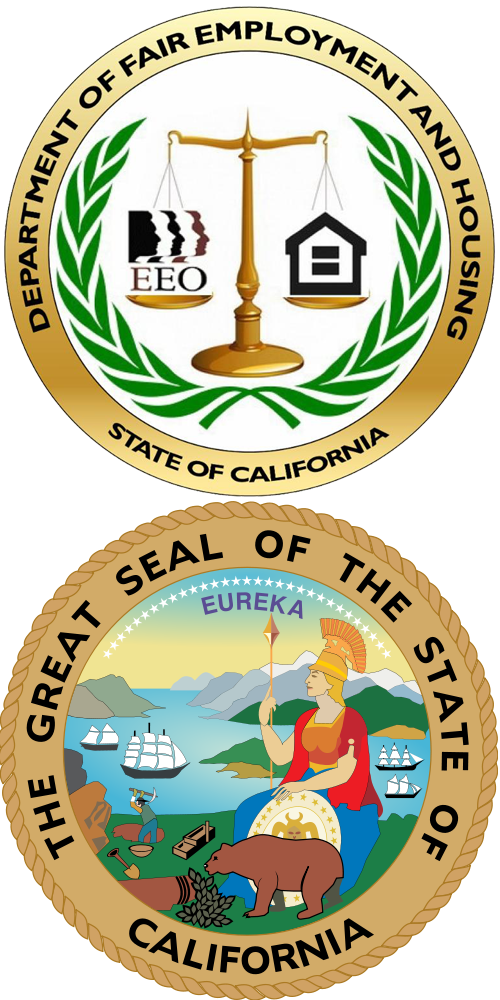Fair Employment and Housing Act
Fair Employment and Housing Act
The California Fair Employment and Housing Act (FEHA) makes the following illegal for employers to do:
* Refuse to hire or employ any person, or refuse to select the person for a training program leading to employment, because of race, religious creed, color, national origin, ancestry, physical disability, mental disability, medical condition, marital status, or sex.
* Bar or discharge any person from employment, or from a training program leading to employment, because of race, religious creed, color, national origin, ancestry, physical disability, mental disability, medical condition, marital status, or sex.
* Discriminate against any person in compensation or in terms, conditions, or privileges of employment because of race, religious creed, color, national origin, ancestry, physical disability, mental disability, medical condition, martial status, or sex.
* refuse to hire or employ, or to discharge, dismiss, reduce, suspend, or demote, any individual who is at least 40 years old on the basis of age.
* to harass an employee or applicant for employment because of race, religious creed, color, national origin, ancestry, physical disability, mental disability, medical condition, sex, or age
* to retaliate against any person for opposing any practice forbidden or made unlawful by the FEHA or for testifying or otherwise participating in proceedings under the FEHA
This means that everyone is protected by the FEHA in one way or another. At the very least, it is illegal to discriminate on the basis of sex; everyone is protected in that regard.
Who Does FEHA Apply To:
FEHA prohibits employers from discriminating. To be stopped from discrimination, a private employer needs to have at least five employees. To be stopped from discrimination, a public employer needs to have only one employee.
Harassment is different. FEHA prohibits harassment when there is even only one employee. However, the harassment must be based on one of the protected classes. See Harassment.
Non-profit corporations and associations are also covered by FEHA, as long as they employ people.
